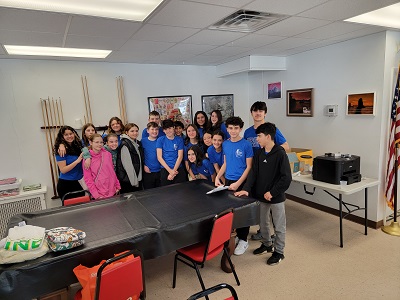By Peter Lyons Hall
There are many categories that the United States leads the world in that are deplorable: jail populations, obesity, homicides, and others. But one category where the US leads is even more difficult to comprehend: food waste.
According to RTS.com, the US “discards more food than any other country in the world: nearly 60 million tons — 120 billion pounds — every year. That’s estimated to be almost 40 percent of the entire US food supply, and equates to 325 pounds of waste per person. That’s like every person in America throwing 975 average sized apples right into the garbage — or rather right into landfills, as most discarded food ends up there. In fact, food is the single largest component taking up space inside US landfills, making up 22 percent of municipal solid waste (MSW). All told, the amount of food wasted in America has an approximate value of nearly $218 billion – the equivalent of 130 billion meals.”
What’s remarkable about these statistics is that there are many areas in the US that are a food desert, where the incidence of food insecurity is so high that we have residents who are consistently malnourished. This means that while we are apparently successful in generating more food than we need, we are either not getting it to the right people or not using an efficient method for using or storing our food products. Could it be that we are not producing the right kinds of food?
The Lakeside Farmers Market in Greenwood Lake each Saturday, from 9AM-1PM, features a number of vendors, among them Grow Local Greenwood Lake, a local organization that is leading the way in regenerative living. “Our community composting program welcomes your food scraps, turning them into nutrient-rich compost for use in our garden and yours,” proclaims their website. Market Manager, Karen Wintrow, reminds residents and visitors about the value of having a composting program. “Separating food scraps is one of the simplest ways to improve the environment. It helps to reduce methane emissions in landfills while reintroducing biodiversity into our soil.” The weekly market accepts food scraps from anyone and it has been growing little by little. Here are some of the reasons why you should consider diverting food scraps from the garbage and, instead, sending them to the free compost collection receptacles at the Lakeside Farmers Market:
Composting reduces methane. Composting is the process of recycling food scraps and other organic matter and plays a pivotal role in reducing organic waste landfills. When organic materials like food scraps and yard waste end up in landfills, they decompose anaerobically, producing methane, a potent greenhouse gas that contributes to climate change. Compositing facilitates the decomposition of organic matter in an aerobic environment, significantly reducing methane emissions.
- Composting enriches soil health and fertility. The nutrient-rich compost created from organic waste contains valuable organic matter, microorganisms, and essential nutrients that enhance soil structure and provide a natural source of nourishment for plants. In addition to eliminating the need for synthetic fertilizers, which can have detrimental environmental impacts, composting improves soil water retention and reduces erosion, contributing to more resilient and sustainable agricultural systems.
- Composting promotes sustainable resource management. By diverting organic waste from landfills and incineration, it conserves landfill space, and reduces the need for energy-intensive waste disposal methods. It is a tangible way for individuals, communities, and businesses to participate in the circular economy, where resources are reused and recycled, ultimately leading to a more sustainable and ecologically responsible future.
The products generally accepted at compost facilities include the following: Fruits and vegetables, eggshells, coffee grounds and tea bags, nuts, bread, rice, and past and plant waste – including leaf and pesticide-free yard waste and houseplants. But no meat, bones, or dairy products.
The Lakeside Farmers Market [VillageofGreenwoodLake.org/lakeside-farmers-market] features a number of local farms, orchards, as well as producers of prepared foods and artisan wares. The produce and fruit presented by the vendors ripen naturally on the vine or in the soil and do not spend any time in plastic containers or shrink wrap, trying to ripen in transit. They are full of nutrients because they are delivered to the market within hours of being picked. The vendors can answer your questions about the source of all the ingredients used for baked goods and prepared foods. And don’t forget to bring your own compost container of food scraps so that we can keep them out of landfills!






